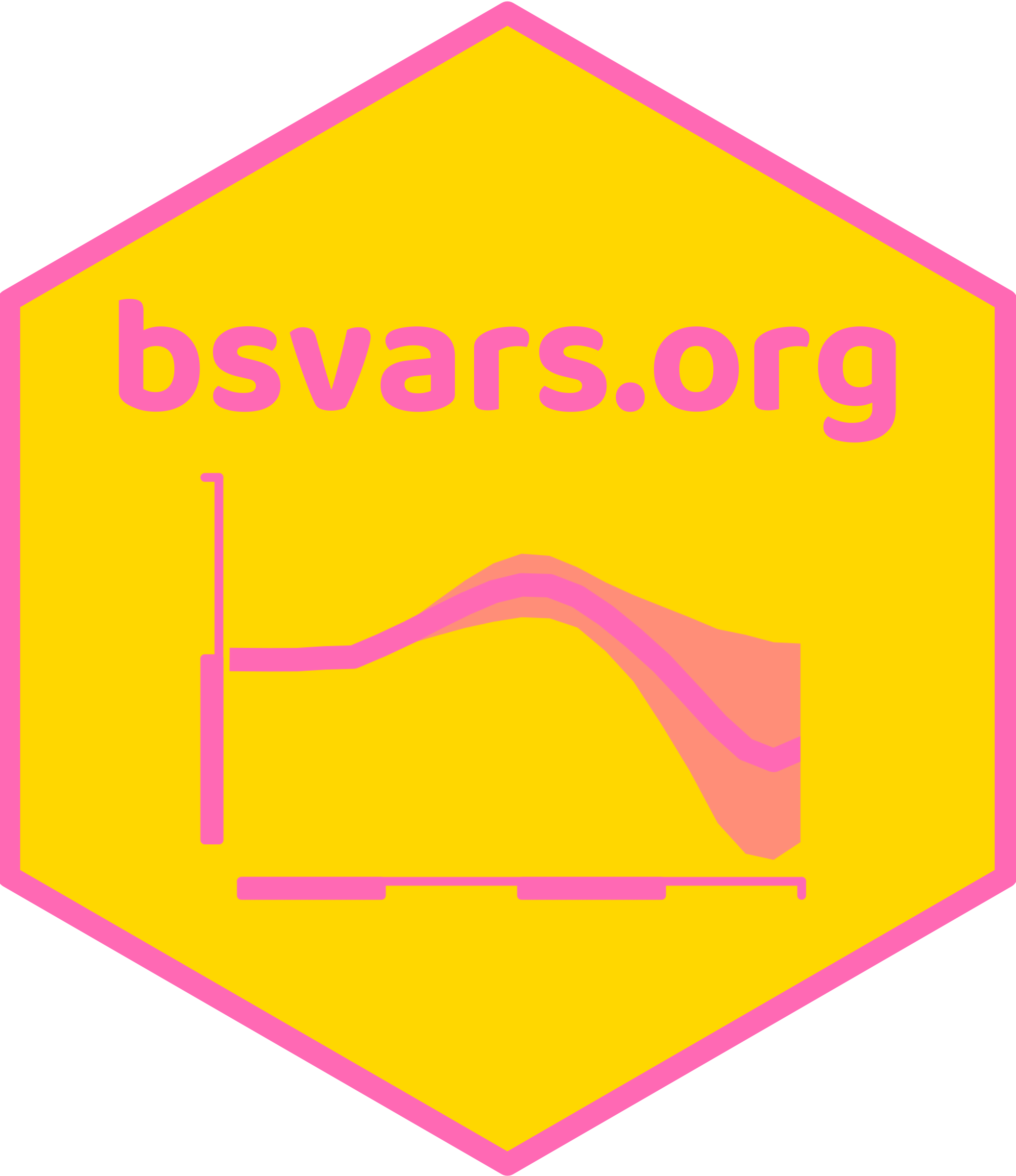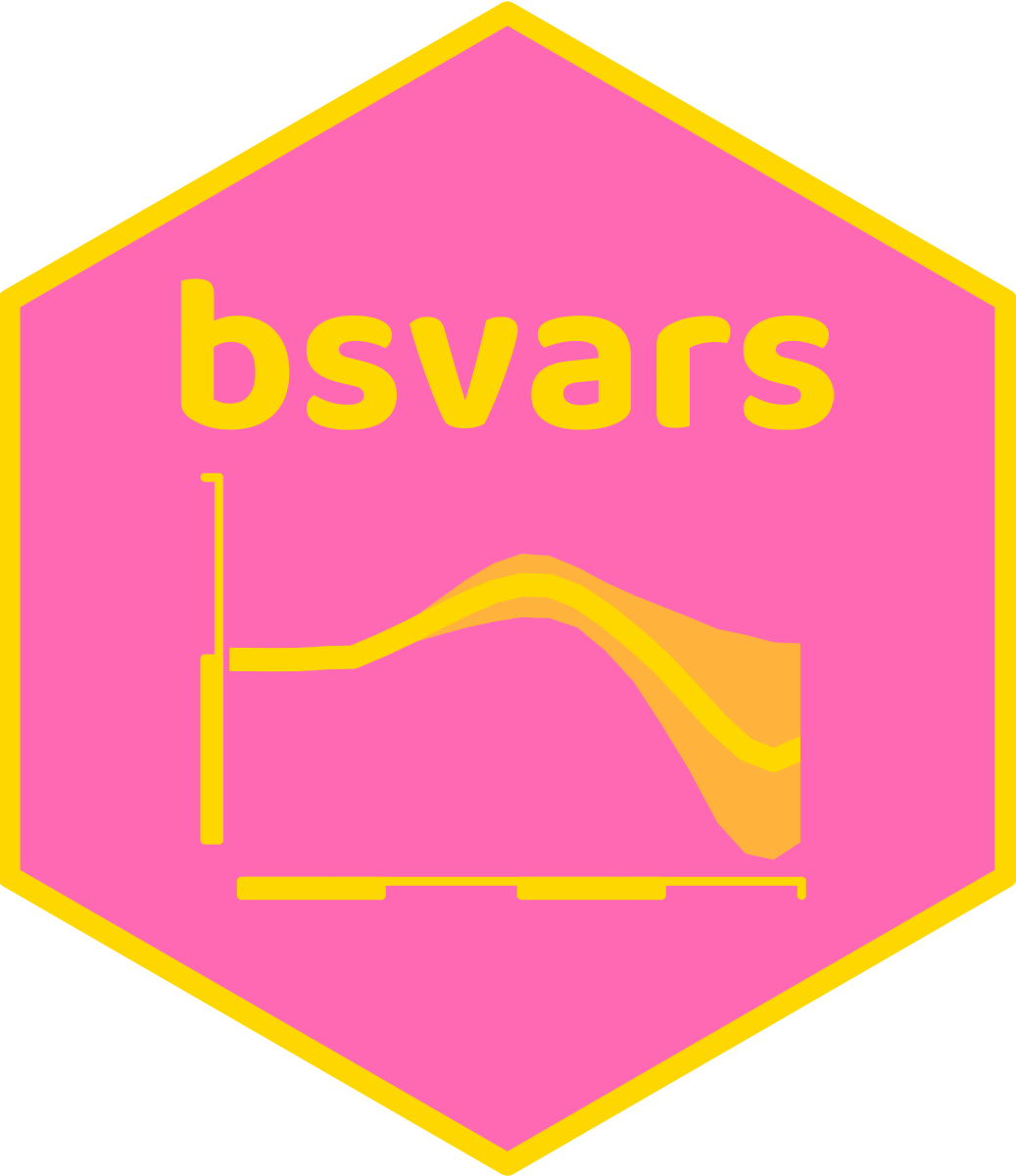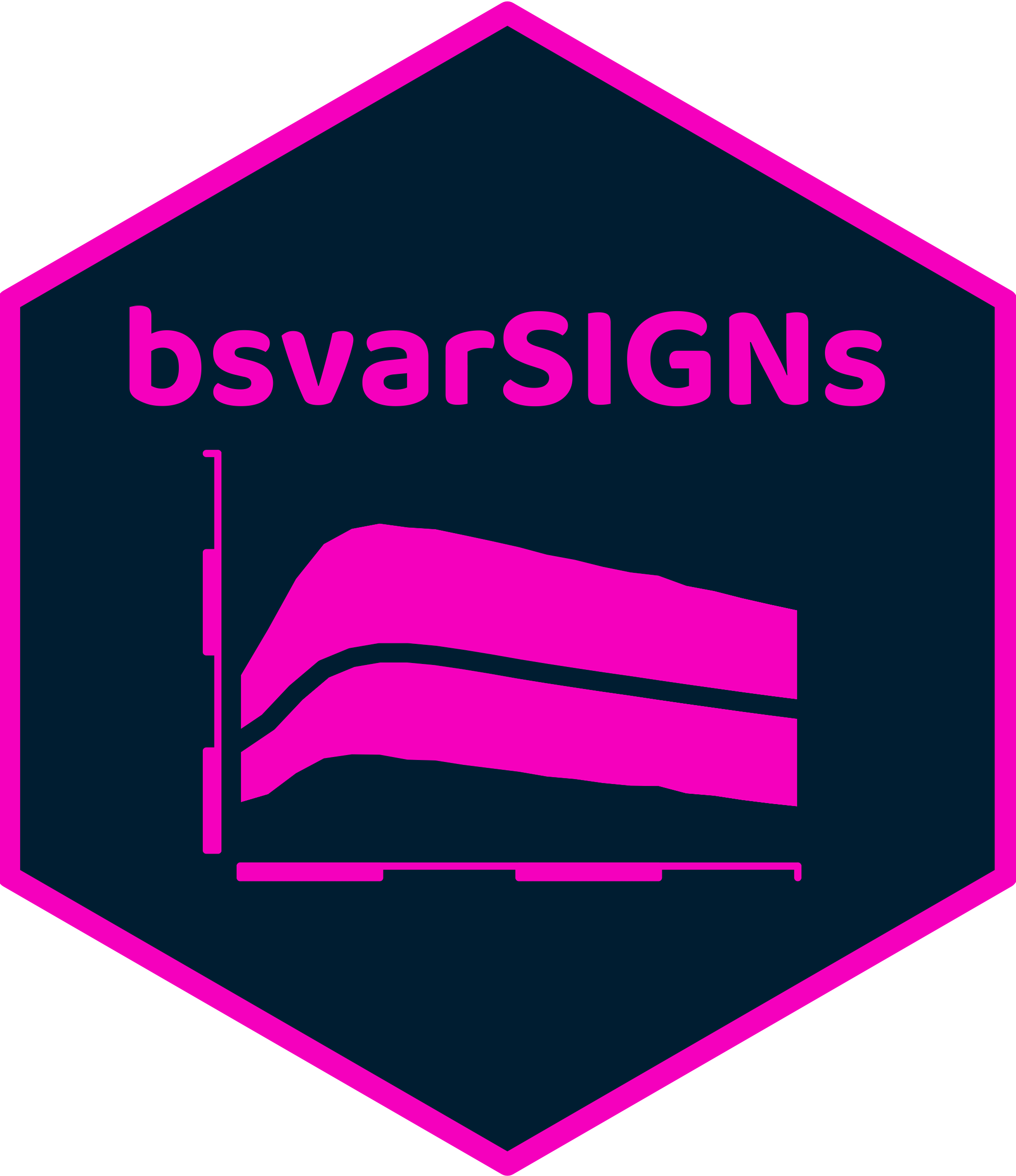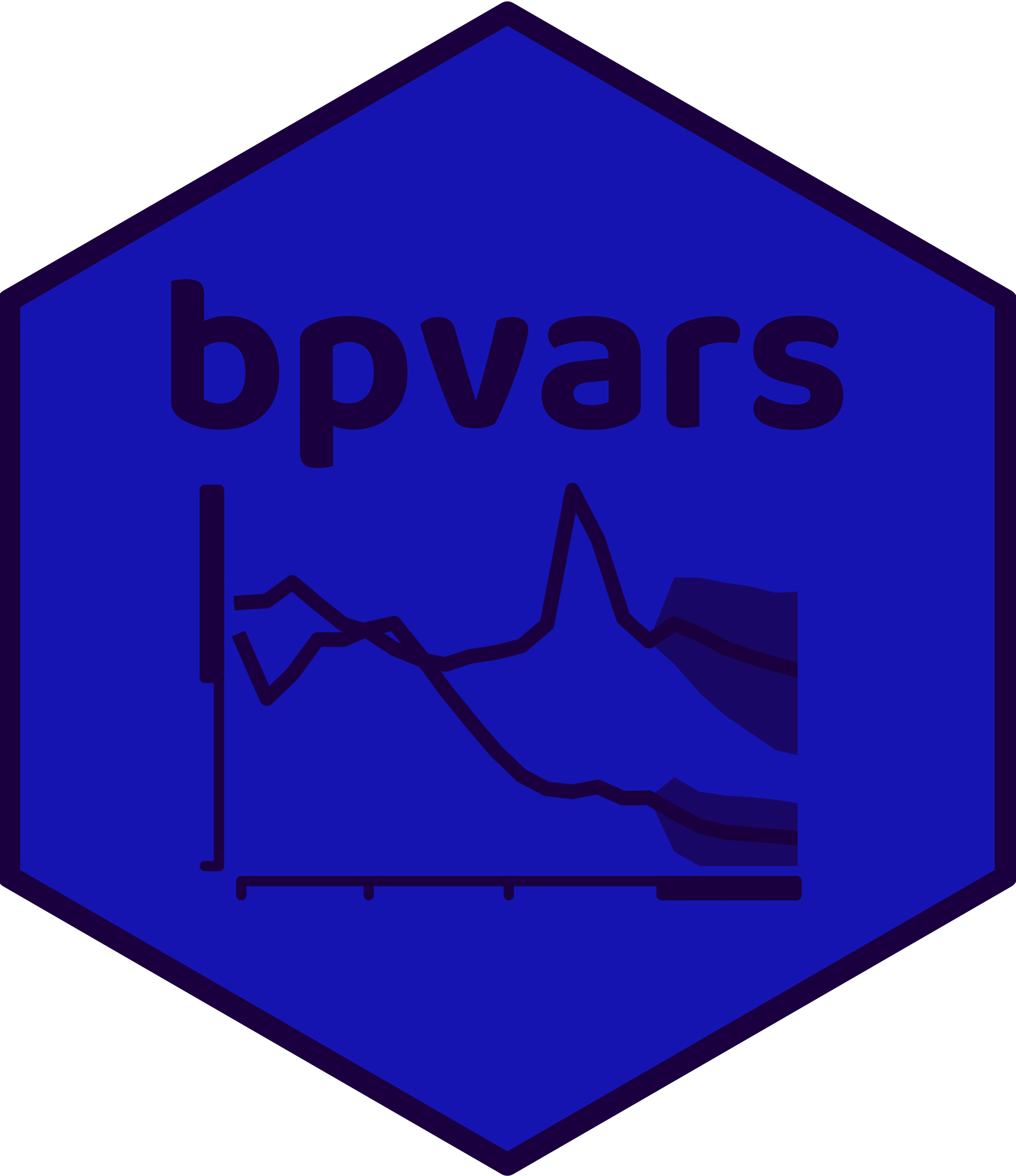bsvars
We develop R packages for Bayesian Structural Vector Autoregressions using frontier econometric methods and compiled code written in C++.
bsvars
An R package for Bayesian Estimation of Structural Vector Autoregressive Models
Provides fast and efficient procedures for Bayesian analysis of Structural Vector Autoregressions. This package estimates a wide range of models, including homo-, heteroskedastic, and non-normal specifications. Structural models can be identified by adjustable exclusion restrictions, time-varying volatility, or non-normality. They all include a flexible three-level equation-specific local-global hierarchical prior distribution for the estimated level of shrinkage for autoregressive and structural parameters. Additionally, the package facilitates predictive and structural analyses such as impulse responses, forecast error variance and historical decompositions, forecasting, verification of heteroskedasticity, non-normality, and hypotheses on autoregressive parameters, as well as analyses of structural shocks, volatilities, and fitted values. Beautiful plots, informative summary functions, and extensive documentation including the vignette by Woźniak (2025) complement all this. The implemented techniques align closely with those presented in Lütkepohl, Shang, Uzeda, & Woźniak (2025), Lütkepohl & Woźniak (2020), and Song & Woźniak (2021). The bsvars package is aligned regarding objects, workflows, and code structure with the R package bsvarSIGNs by Wang & Woźniak (2025), and they constitute an integrated toolset.
[CRAN] [website] [vignette] [manual] [resources] [repo]
Our Publications
Lütkepohl, Shang, Uzeda, & Woźniak (2025) Partial identification of structural vector autoregressions with non-centred stochastic volatility, Journal of Econometrics
Lütkepohl & Woźniak (2020) Bayesian inference for structural vector autoregressions identified by Markov-switching heteroskedasticity, Journal of Economic Dynamics and Control
Song & Woźniak (2021) Markov Switching, Oxford Research Encyclopedia of Economics and FinanceYoutube Recordings
[Forecasting for Social Good youtube recording]
[Workshops for Ukraine youtube recording]
Recent Presentations
[Szkoła Główna Handlowa 2024-12 featuring bsvars 3.2 and bsvarSIGNs 1.0.1]
[Uniwersytet Warszawski 2024-12 featuring bsvars 3.2 and bsvarSIGNs 1.0.1]
[Uniwersytet Ekonomiczny w Krakowie 2024-12 featuring bsvars 3.2 and bsvarSIGNs 1.0.1]
[Forecasting for Social Good youtube recording]
[Forecasting for Social Good 2024-12 featuring bsvars 3.2 and bsvarSIGNs 1.0.1]
[see all presentations]
bsvarSIGNs
An R package for Bayesian Estimation of Structural Vector Autoregressions Identified by Sign, Zero, and Narrative Restrictions
by Xiaolei Wang and Tomasz Woźniak
The First Prize laureate of the Di Cook Open-Source Statistical Software Award granted by the Statistical Society of Australia in 2024
Implements state-of-the-art algorithms for the Bayesian analysis of Structural Vector Autoregressions identified by sign, zero, and narrative restrictions. The core model is based on a flexible Vector Autoregression with estimated hyper-parameters of the Minnesota prior as in Giannone, Lenza, Primiceri (2015). The sign restrictions are implemented employing the methods proposed by Rubio-Ramírez, Waggoner & Zha (2010), while identification through sign and zero restrictions follows the approach developed by Arias, Rubio-Ramírez, & Waggoner (2018). Furthermore, our tool provides algorithms for identification via sign and narrative restrictions, in line with the methods introduced by Antolín-Díaz and Rubio-Ramírez (2018). Users can also estimate a model with sign, zero, and narrative restrictions imposed at once. The package facilitates predictive and structural analyses using impulse responses, forecast error variance and historical decompositions, forecasting and conditional forecasting, as well as analyses of structural shocks and fitted values. All this is complemented by colourful plots, user-friendly summary functions, and comprehensive documentation including the vignette by Wang & Woźniak (2025). The bsvarSIGNs package is aligned regarding objects, workflows, and code structure with the R package bsvars by Woźniak (2024), and they constitute an integrated toolset. It was granted the Di Cook Open-Source Statistical Software Award by the Statistical Society of Australia in 2024.
[CRAN] [website] [vignette] [manual] [resources] [repo]
Youtube Recordings
[Workshops for Ukraine youtube recording]
[Forecasting for Social Good youtube recording]
Recent Presentations
[Quantlab 2025-07 featuring bsvarSIGNs 2.0]
[IIF Workshop on Open Source Forecasting 2025-06 featuring bsvarSIGNs 2.0]
[Workshops for Ukraine 2025-03 featuring bsvarSIGNs 2.0]
[Statistical Society of Australia 2025-02 featuring bsvarSIGNs 2.0]
[Szkoła Główna Handlowa 2024-12 featuring bsvars 3.2 and bsvarSIGNs 1.0.1]
[Uniwersytet Warszawski 2024-12 featuring bsvars 3.2 and bsvarSIGNs 1.0.1]
[Uniwersytet Ekonomiczny w Krakowie 2024-12 featuring bsvars 3.2 and bsvarSIGNs 1.0.1]
[Forecasting for Social Good youtube recording]
[Forecasting for Social Good 2024-12 featuring bsvars 3.2 and bsvarSIGNs 1.0.1]
[see all presentations]
bpvars
An R package for Forecasting with Bayesian Panel Vector Autoregressions
by Tomasz Woźniak with contributions by Miguel Sanchez Martinez
The package is designed for forecasting labour market outcomes at the International Labour Organization.
Provides Bayesian estimation and forecasting of dynamic panel data using Bayesian Panel Vector Autoregressions with hierarchical prior distributions. The models include country-specific Vector Autoregressions (VARs) that share a global prior distribution that extend the model by Jarociński (2010). Under this prior expected value, each country’s system follows a global VAR with country-invariant parameters. Further flexibility is provided by the hierarchical prior structure that retains the Minnesota prior interpretation for the global VAR and features estimated prior covariance matrices, shrinkage, and persistence levels. Bayesian forecasting is developed for models including exogenous variables, allowing conditional forecasts given the future trajectories of some variables and restricted forecasts assuring that rates are forecasted to stay positive and less than 100. The package implements the model specification, estimation, and forecasting routines, facilitating coherent workflows and reproducibility. It also includes automated pseudo-out-of-sample forecasting and computation of forecasting performance measures. Beautiful plots, informative summary functions, and extensive documentation complement all this. Extraordinary computational speed is achieved thanks to employing frontier econometric and numerical techniques and algorithms written in C++. The bpvars package is aligned regarding objects, workflows, and code structure with the R packages bsvars by Woźniak (2024) and bsvarSIGNs by Wang & Woźniak (2025), and they constitute an integrated toolset. Copyright: 2025 International Labour Organization.
[CRAN] [website] [manual] [repo] [resources]
Presentations
[International Labour Organization 2025-03 featuring bvarPANELs 0.2]
StealLikeBayes
A Compendium of Bayesian Statistical Routines Written in C++
by Tomasz Woźniak, Xiaolei Wang, Longcan Li, Shelly Xie, Filip Reierson Kenyon Ng
This is a compendium of C++ routines useful for Bayesian statistics. We steal other people’s C++ code, repurpose it, and export it so developers of R packages can use it in their C++ code. We actually don’t steal anything, or claim that Thomas Bayes did, but copy code that is compatible with our GPL 3 licence, fully acknowledging the authorship of the original code.




